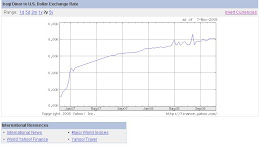A network has been set up in Basra province to dispose of rain water in a project touted as the first of its kind in the country since the U.S.-led invasion in 2003.
"The project, which was wrapped up on Thursday, has been designed to dispose of rain water in the areas of Hay al-Hussein, al-Wanbi, Shat al-Turk, and al-Jamiyat," an official from the development and construction committee in Basra's provincial council, Ghali Najm Matar, told Aswat al-Iraq - Voices of Iraq - (VOI).
Three stations working at a capacity of 3,000 cubic meters each have been installed to pull water, in addition to two other spare stations and electricity generators, Matar explained.
The total cost of the project, which took almost a year, was $3 million, financed by the U.S. Engineers Corps, he added.
The Shiite province of Basra, 590 km south of the Iraqi capital Baghdad, had an estimated metropolitan population of 2,300,000 in 2008. Basra is the cradle of the first civilization of Sumer. It has the seven main Iraqi ports. The first built in Islam 14 A.H. (After Hegira), the city played an important role in early Islamic history. The area surrounding Basra has substantial petroleum resources and many oil wells. The city's oil refinery has a production capacity of about 140,000 barrels per day (bpd). Basra is in a fertile agricultural region, with major products including rice, maize corn, barley, pearl millet, wheat and dates as well as livestock. A network of canals flowed through the city, giving it the nickname "The Venice of the Middle East" at least at high tide.
(Voices of Iraq)

